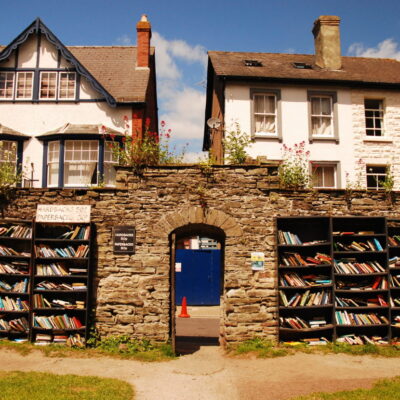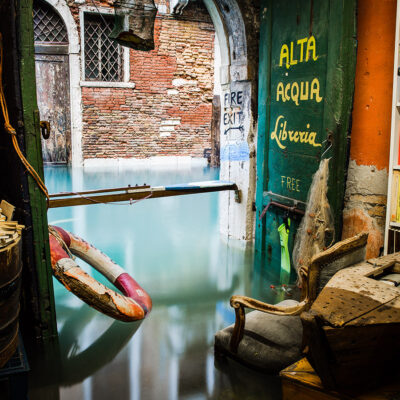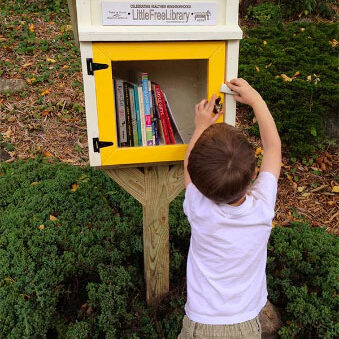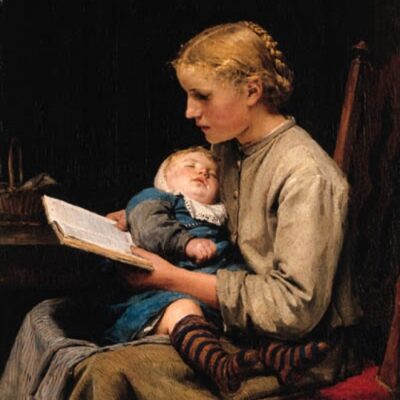The Snow Hare by Paula Lichtarowicz
Most of the novels I’ve read set just before, during, and/or after World War II, involve events taking place in Great Britain or Germany, so The Snow Hare, a brutal but tender story about the human experience of war in Poland immediately grabbed my attention. Aspects of the book changed my reaction from “how interesting” to “how impressive.” First, Paula Lichtarowicz’s gift for writing makes this unique story immediately come alive. In this scene, a young girl named Lena and her sister Ala are looking for the gypsy fortune-tellers at the carnival that has just come to their town of Przemysl in Southeast Poland.
She’s off, running down to old man Bosco, who’s turning his chestnuts on the griddle, wiping his face because of the heat of the coals. Old man Bosko knows everything worth knowing. Lena watches him raise his spatula and point south. Ala turns back and waves at her, ‘The marshes, come on.’
Once they’re out of the forest, Ala stops and shields her eyes to scour the land alongside the river. The brown-crusted ground is an acre wide and thicketed with reeds and bulrushes, dry enough to walk on in the summer, but a bog, alive with trout and carp as soon as the October rains fall and the San bursts its banks.
‘There! Over there!’ Ala cries. ‘I see them!’
A dozen or so hoop-framed caravans stand in a row near the thin silver river, shaggy ponies hobbled in the vehicle’s shade. It seems very still in this open space after the noise and action in the tent. Little knots of townspeople wait behind caravans, fanning faces or smoking pipes, or simply gazing at distant heron’s nests or the squabbling geese.
‘Which one, twig? Which caravan?’
“Does it matter?’
‘Of course it matters. There could be any number of fortunes out there.’
Lena looks over the caravans, unpainted and tatty. She shrugs. ‘They all look alike to me.’
‘They can’t be.’
‘All right, go for the most popular one, where the most people are waiting.’
‘But they might shut up business for the day before I get to go in.’
‘The least busy then?’
Ala looks at her. ‘You think?’
Ala is off, running to the farthest caravan, the one with a dirty red sheet hanging at the back. A man comes out, squinting in the sunlight at the top of the wooden steps, then he hurries down and away. No one else is waiting so Ala lifts her skirts and jumps up. She pulls back the curtain and disappears inside. [pp. 14-15]
All of the characters are strikingly different from others I’ve read about but I immediately felt a connection with them. Lena is the protagonist of The Snow Hare, and we get to see how events change her as she develops from a young girl to a woman. In fact, the fortune-teller provides hints for her future when she says:
‘My daughter, at this moment your future seems no more perilous than a stream you might follow down from your mountain, isn’t that so? But what happens when other people jump in this clear stream of yours and muddy it with their boots?’ She held Lena’s gaze. ‘What happens when love creeps up and puts its hand on your shoulder, what then?’ [p. 28]
Lena‘s honesty about her ambition makes her appear harsh and quite cruel at times. Although she refers to herself as a ‘rationalist,’ she appears irrationally certain that she can do whatever she wants. This blind confidence foreshadows upcoming events. Life throws her one curve ball after another, and her freedom of choice and movement quickly fade. In the following scene, Lena’s mama is telling her father that Lena may possibly have a suitor. Lena, listening at the door, bursts into the room.
Papa raises his vodka glass, beaming. “What a surprise. We were just chatting about—whatever was it, Zosia, that we were talking about?’
Lena runs to his armchair and takes his hands.
‘Papa, promise me right now that I’ll go to medical school and you won’t let Mama interfere. You know how she does it—starting all slowly, like a dog licking a sore, so you think it’s only a bit of fur the dog’s bothering and you forget to keep an eye on things. Then suddenly there it is one day—a gaping hole in the skin—and the dog’s worried right through the fat and muscle to a lung or kidney or something vital.’
Mama’s needle stops mid-stitch. ‘Lena, my darling child, are you calling me some sort of—’
‘I’m sorry, Mama, but it happens to be true. Papa, listen, you know Mama’s like this—she gets what she wants every time. But you have to promise me tonight, here and now—’
‘My darling,’ Mama interrupts, ‘you misunderstand my intentions.’
‘Do I?’ [p. 41]
Shortly after I finished The Snow Hare, I sought more information about the history of Poland toward the end of the 1930’s and into the 1940’s. At My Learning, Lola’s Journey: Deported to Siberia, I read that “In September 1939, Germany and Russia invaded Poland and divided it between them. Stalin wanted to destroy eastern Poland and absorb it into the Soviet Union, so he confiscated land, property, and businesses, and deported over 1.5 million Polish people to slave labour camps in Kazakhstan, Uzbekistan, and the Arctic Circle. Many died because of appalling conditions during the journeys and at the camps.”
At the website Polish at Heart, The WWII Deportations – Still An Untold Story, I discovered what happened when the tide turned and Germany and Russia became enemies instead of allies. “On 22nd June 1941 Nazi Germany attacked the Soviet Union, forcing them to acknowledge all the help they could get to retaliate. In London the Polish Government in Exile and the Soviet Union came to an agreement that the Soviets would release their Polish prisoners so that an army, commanded by General Wladyslaw Anders (also to be set free from prison), could be formed in Russia. The Poles had to find their way across vast distances, helped only by Polish consular officials and Persons of Trust at railway junctions and cities. Some groups numbered less than 10% of the total numbers of prisoners who had entered those camps. The others were long buried under the Siberian snow. And typhus and other diseases killed off even more of the weakened, bedraggled people.”
Inspired by the memories of the author’s grandmother, which were recorded before she died, the narration of The Snow Hare follows these historical events and their effect on all individuals living in Poland at that time. In the following passage from the novel, Lena and her family have survived horrendous conditions at a Russian work camp only to be transported to an equally dreadful tent city in the middle of nowhere, far away from the places of their birth.
A different tent is coming together in its mosaic pieces. Yes, this is it. The pale-brown one, its pitched roof and sloping walls large enough for a single family, not a circus. Sufficient for her family to lie in an ill-tempered pile, listening to the complaints of families in other tents nearby. Hundreds of tents, thousands, brown as the soil of the steppe. But not as many tents as flies.
Romek is the first to laugh when the train pulls in and there is no more track ahead of them, just tents and dust. “This is it? This is where our country’s great army is being reformed? This is where we’re to live?”
This Molek rubs an elbow at the grime on the window. ‘Someone is making a joke, that is for sure. A bad Russian joke.’
Dust and thin yellow dogs come to greet them. And flies, fat and screaming, although who’s to say they haven’t travelled with them from the forest to this flat brown land? The black flies scream in clouds around the large pale tents where men from other trains queue to be assigned a place in war.
For more than a week they have been living in the tent. Waiting for this army that is to reform, taking its shape from all these dusty bone people. Every day a hundred or a thousand more arrive at the station and tents go up, like a pox spreading in across the steppe. And why not bring more? – this land is vast. There are makeshift ovens baking unleavened bread, and wells full of water, and there is nothing to do but wait. [pp. 358-359]
I am so grateful to Paula Lichtarowicz for writing about the Polish experience during World War II. I just don’t think there is much out there about it and it happened to over a million people! It made me aware that there was a great deal of suffering in the east as well as the west. And even after the war, Poland was given to Stalin at Yalta so that stories were probably never told. It’s actually a miracle that this one survived and I am also thankful that Little, Brown and Company published it and that I was given a free copy through Goodreads Giveaway. I would have gladly paid for it—it’s that good!
















